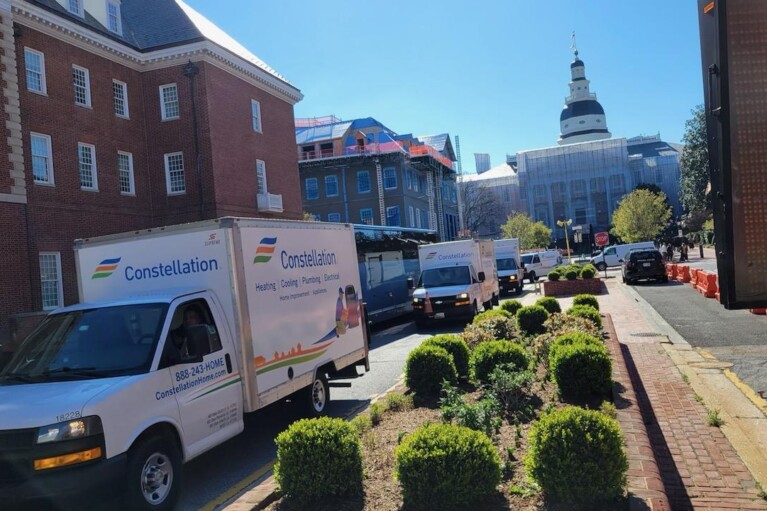Lawmakers Pass Bill That Would Expand Prosecution of Child Erotica

The images that popped up on Frederick County prosecutor Joyce King’s computer screen that couldn’t be charged as child pornography were as disturbing as their legality under state law was surprising.
Pictures and videos of children posed provocatively, with cameras focused on private areas, are considered child erotica and not prosecutable under the state’s current child pornography law because they do not depict a sex act.
That could all change.
The General Assembly voted unanimously to add “lascivious exhibition,” or exposure of the pubic area of any person, to the state’s child pornography statute. Lawmakers also added language that would allow prosecution of pornographic content featuring computer-generated images that are indistinguishable from an actual child.
King, who is chief counsel in the Frederick County State’s Attorney’s Office and who specializes in cybercrime, testified in favor of the bill during the legislative session. She said the photos of child erotica that are peddled around dark corners of the internet are disturbing and victimize children within the bounds of some state laws.
“We’re talking about the documentation of child sex abuse,” she told the House Judiciary Committee last month.
In 2018, there were 2,590 National Center for Missing and Exploited Children tips about cybercrimes against children in Maryland. Hundreds of those cases could not be investigated because they were determined to be child erotica, King said.
Such cases have been illegal federally, but state law has not changed to allow for prosecution in state courts.
“I came across several images, which were shocking to me that were legal in Maryland, but were federally illegal,” King said. “I wanted to close that loophole. I felt like it was inappropriate for Maryland to have a lower threshold.”
Lawmakers spent time on amendments to bring the bill in line with the Supreme Court decision, Ashcroft v. Free Speech Coalition, which found a federal prohibition on forms of virtual child pornography was unconstitutional.
But technology has significantly advanced since that decision in 2002, to include “deep fakes” that don’t seem computer-generated.
“Now, technology has advanced so dramatically, you could have video depictions that are not photographs that could look exactly like a child,” said Senate Judicial Proceedings Chairman Robert A. Zirkin, who called the bill one of the most consequential passed by lawmakers this session.
The bill passed by lawmakers includes a narrow definition to prohibit possession of material “indistinguishable from an actual child,” meaning that an ordinary person would conclude that the image is of an actual minor engaged in sexual conduct. The prohibition does not include images or items depicting minors that are drawings, cartoons, sculptures or paintings.
Those who championed the measures expanding the law said child pornography, real or computer-generated, is harmful to society.
“All children are harmed by the proliferation of child pornography,” said Lisae C. Jordan, executive director of the Maryland Coalition Against Sexual Assault, which supported the legislation.
While lawmakers passed House Bill 1027 and Senate Bill 736 from Montgomery County Democrats Del. Lesley Lopez and Sen. Susan Lee, Del. C.T. Wilson (D-Charles) and Del. Jesse Pippy (R-Frederick) also had filed a bill to update the state’s child pornography laws to include lascivious acts and computer-generated images.
“The question for the law should not be about the realness of the photograph, but about the wrongness of the photographs,” Wilson told the House Judiciary Committee.
Lopez, who used to work for America’s Most Wanted in Bethesda, said she’s heard “horrendous” stories of childhood abuse and understands how invasive such trauma is throughout a person’s life.
That so many abusers could go free because of a loophole in state law exacerbates the pain of victims, Lopez said.
“We all can agree that child predators are the worst of the worst. Just making sure that our law enforcement is empowered to the fullest extent to go after those people is really important,” she said.
A first offense for possession of child pornography in Maryland is a misdemeanor, punishable by imprisonment up to five years. A subsequent offense is a felony, with a prison sentence up to 10 years.
A separate bill that would have determined whether teenage “sexting” violates the child pornography statute failed to move forward this year.
If signed into law, King said the bill will allow prosecutors to more effectively combat a “rampant and growing” genre of child pornography.
“Cybercrime is something that is constantly evolving and changing and developing, so we need to keep up with it,” King said. “And CGI is the next frontier. I’ve seen images almost on a weekly basis.”




 Creative Commons Attribution
Creative Commons Attribution